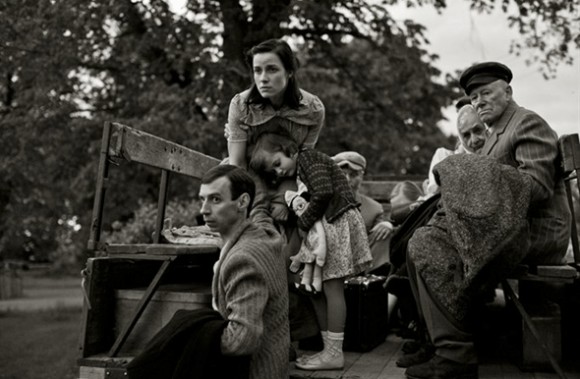“In the Crosswind going to Toronto was a big breakthrough,” Sepp told FNE, referring to the impressive debut film by Marti Helde and produced by Allfilm. The film, which is screening in the international competition of Black Nights Film Festival (running through 30 November 2014), was the first Estonian film ever selected for the main competition at Toronto IFF. The success capped a year that began with the Berlinale Forum international premiere of Free Range directed by Veiko Ounpuu and produced by Homeless Bob Production, and continued through to the IDFA selection of Stealing Socialism directed by Manfred Vainokivi and produced by Filmivabrik. These international successes follow the national (and festival) box office success of Mushrooming (Seenelkäik) by Toomas Hussar and produced by Allfilm, which reached fourth place in the annual box office in Estonia in 2012 and some 80,000 viewers.
Sepp took a few moments to reflect on how Estonian film reached its current success. “Our focus in the 1990’s was to keep our film industry alive,” she said. “First it was about the survival of Estonian film production.” She added, “I would like to say today Estonian production has survived very well.”
Estonia now produces an average of three national films and two coproductions per year. The coproductions include the 2013 film Tangerines directed by Georgian filmmaker Zaza Urushadze and produced by Allfilm. “It was a very organic coproduction that had an Estonian crew and story with a Georgian director, and was hugely important to the Estonian conscience,” Sepp noted. Tangerines became the most-traveled Estonian film, Sepp said, and was released in Warsaw in 2013. The Estonian/Georgian coproduction was an anomaly; Estonia’s biggest coproduction partners are in Finland and other Scandinavian countries, although Estonia is looking to Germany, France and the UK for further coproduction growth.
Estonian film production will see a huge boost in 2018 when the country marks the centennial of the founding of the Estonian Republic. A special call for films, with a budget that equals more than twice the annual budget for film funding, went out in late 2013 and elicited more than 163 applications. Of those 32 projects made it through the first round and 16 films have been selected to submit their first drafts. In the fall of 2015, those will be winnowed down to nine films to be developed, resulting in five or six feature films, one full-length documentary, two short documentaries, and one high-end six-part dramatic TV series in cooperation with Estonian public broadcaster ERR. Financing for a single feature can normally averages 450,000 EUR, but with the Estonian centennial special project it could be double or triple the amount of funding received through the regular annual grants, depending upon the story. The films chosen for production in 2018 will likely fall into the category of historical, children’s, and dramatic films, with an international committee making the selection.
The special centennial call has had the coincidental benefit of boosting the careers of new Estonian filmmakers. “All the films, except for one animation film, will be debuts,” Sepp said. The result was unplanned; film projects were submitted anonymously. Sepp sees that as an upside, concluding “Nurturing talent is definitely one of the priorities of the Estonian Film Institute.”




















